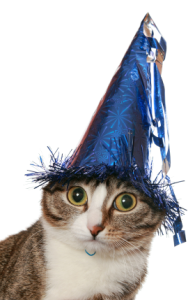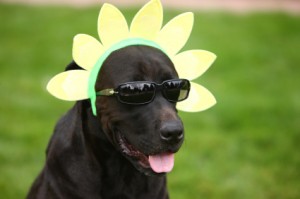Dementia, also known as feline cognitive dysfunction, is an age-related disorder of brain function causing multiple behaviour changes.
In cats the behaviour changes include:
- Yowling excessively and inappropriately
- Urinating or defecating outside the litter box and around the house
- Disorientation and aimless wandering
- Restlessness
- Changes in interaction with people or other pets such as aggression, irritability and clinginess
- Erratic sleeping behaviour: waking, pacing or yowling at night, sleeping less at night and more during the day
- Decreased grooming
 Some diseases mimic cognitive dysfunction. These include hyperthyroidism, brain tumours, viral diseases, high blood pressure, chronic pain, arthritis, diabetes, and urinary tract infections. Many of these diseases exacerbate the behaviour changes of cognitive dysfunction, too, so we must check for and/or treat them before we confirm a diagnosis of cognitive dysfunction.
Some diseases mimic cognitive dysfunction. These include hyperthyroidism, brain tumours, viral diseases, high blood pressure, chronic pain, arthritis, diabetes, and urinary tract infections. Many of these diseases exacerbate the behaviour changes of cognitive dysfunction, too, so we must check for and/or treat them before we confirm a diagnosis of cognitive dysfunction.
Some commonly used drugs such as prednisolone and valium also reduce brain function. Alternatives that reduce decline are often available.
Therapies
1. Diet: Anti-oxidants delay and treat dementia. Antioxidants include Vitamin E, Vitamin C, Alpha-lipoic acid, L-carnitine and beta-carotene. Fruits and vegetables contain many of these.
Omega 3 fatty acids as found in fish oil or food supplements such as Nutricoat also help.
2. Physical therapy and environmental enrichment: Stimulate brain function and delay the onset of dementia with environmental enrichment and games. Try scattering or hiding food or catnip around the house, provide toys that require batting or rolling to release food, give opportunities for climbing, perching and exploring, trail ribbon or feathers along. Petting, brushing and massage stimulate the nerves and brains of old cats, too.
3. Your vet may prescribe medications to reduce inflammation, enhance memory or improve brain function.

